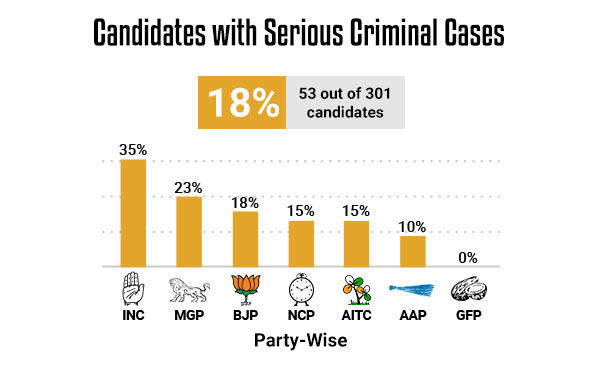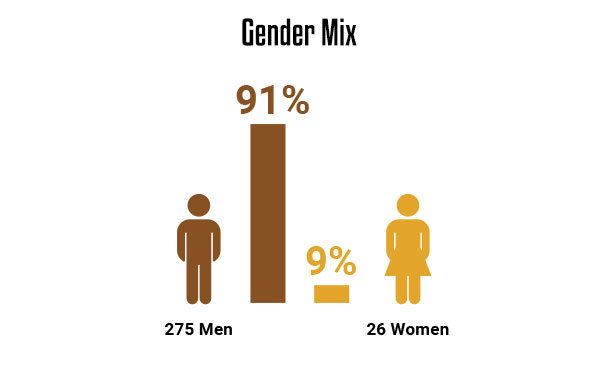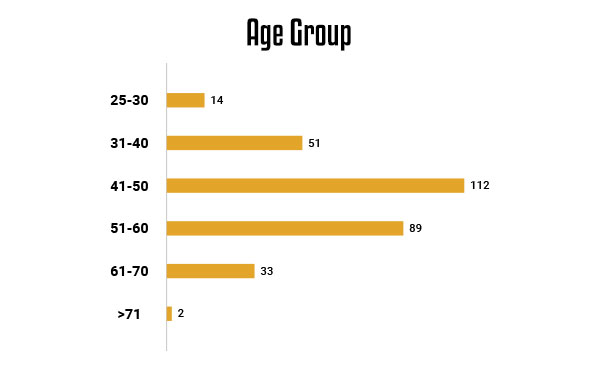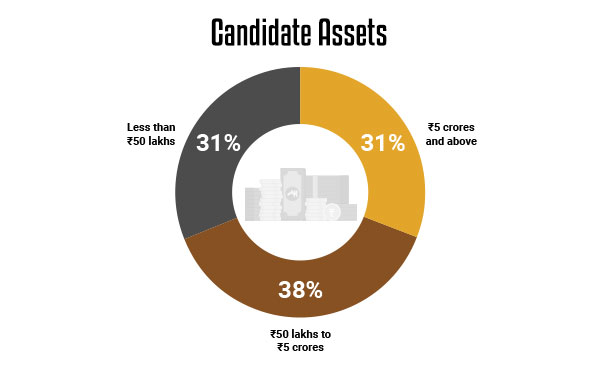
Goa, the smallest state in India by area, will vote for its next Assembly on February 14. A total of 301 candidates will be contesting for 40 assembly seats. Barring a marginal improvement in the academic qualification of the candidates over 2017, there is a visible lack of intent in correcting a gender balance and improving the youth participation ratio. The candidates in the 2022 Assembly elections have a higher number of criminal cases registered against them than those in the 2017 Assembly elections.
Let's look at the profile of the candidates who have filed their nominations in 2022 and amongst which will emerge the leaders who will govern Goa for a five-year term. The data presented below is based on ADR's analysis of 301 sworn affidavits filed by the candidates.

46.6% of the candidates have little to no education (Class 12 or below). 11.3% hold just Diplomas. Graduates comprise only 22.3% of the total candidates. Only 20% were highly qualified (professionals and above). The education levels of the candidates in 2022 are marginally better than that of candidates that contested the 2017 Assembly elections (51% below Class 12, 23% Graduates, and 18% highly qualified).

77 (26%) candidates have declared criminal cases against themselves. However, 53 (18%) candidates have declared 'serious' criminal cases against themselves in their affidavits. A serious criminal cases is one where the offence is non-bailable (eg. murder, kidnap, rape related). The Congress has 35%, MGP has 23%, BJP has 18%, Trinamool Congress has 15%, and the AAP has 10% of its candidates that have declared serious criminal cases against themselves. In comparison, only 19 (7.6%) candidates had declared serious criminal cases against themselves in the 2017 Goa Assembly Elections.

9% of the total candidates in the 2022 Goa Assembly elections are women, in comparison to 7.6% in the 2017 Assembly elections. The Congress which has made women's participation and women's welfare its main poll-plank has only 5% women amongst its 37 candidates while the Trinamool Congress, equally focussed on women's participation has 15% women candidates. The Goa Assembly elections have been male-dominated over the last 15 years with women's participation rate remaining below 10% - 6.9% in 2007, 4.6% in 2012, 7.6% in 2017, and 9% in 2022.

Given the median age of India's population at 28 years, only 4.6% of the candidates in the 2022 Assembly elections are below 30 years of age. This reflects the growing alienation of the youth from direct participation in India's electoral politics. It also serves as one of the possible reasons for the mismatch between the youth's expectations and the government policies.

31% of the candidates declared assets less than ₹50 lakhs while 38% had assets between ₹50 lakhs to ₹5 crore. 31% fell within the richest bracket of having assets greater than ₹5 crore. The richest candidate has declared assets worth ₹92 crore while 2 candidates have declared assets worth only ₹25 thousand.
With more of the same offered, we as citizens can only exercise greater personal discretion while casting our votes and elect competent leaders who can shape Goa's destiny for the next five years.
| Also read: Historical statistics and analysis on Goa Assembly Elections |
TO READ THE FULL ARTICLE

Get full access to the exciting content on The Mirrority by logging in

Support independent journalism
Even the very best of media houses in our country today are yielding to the pressure of click-bait journalism in order to survive. More than ever before, our country needs journalism that is independent, fair and non-pliant to the bureaucracy. Such journalism needs the support of like-minded readers like you to help us survive editorially and financially.
Whether you live in India or India lives inside you, help us continue to produce quality journalism with your contribution.
CONTRIBUTE
